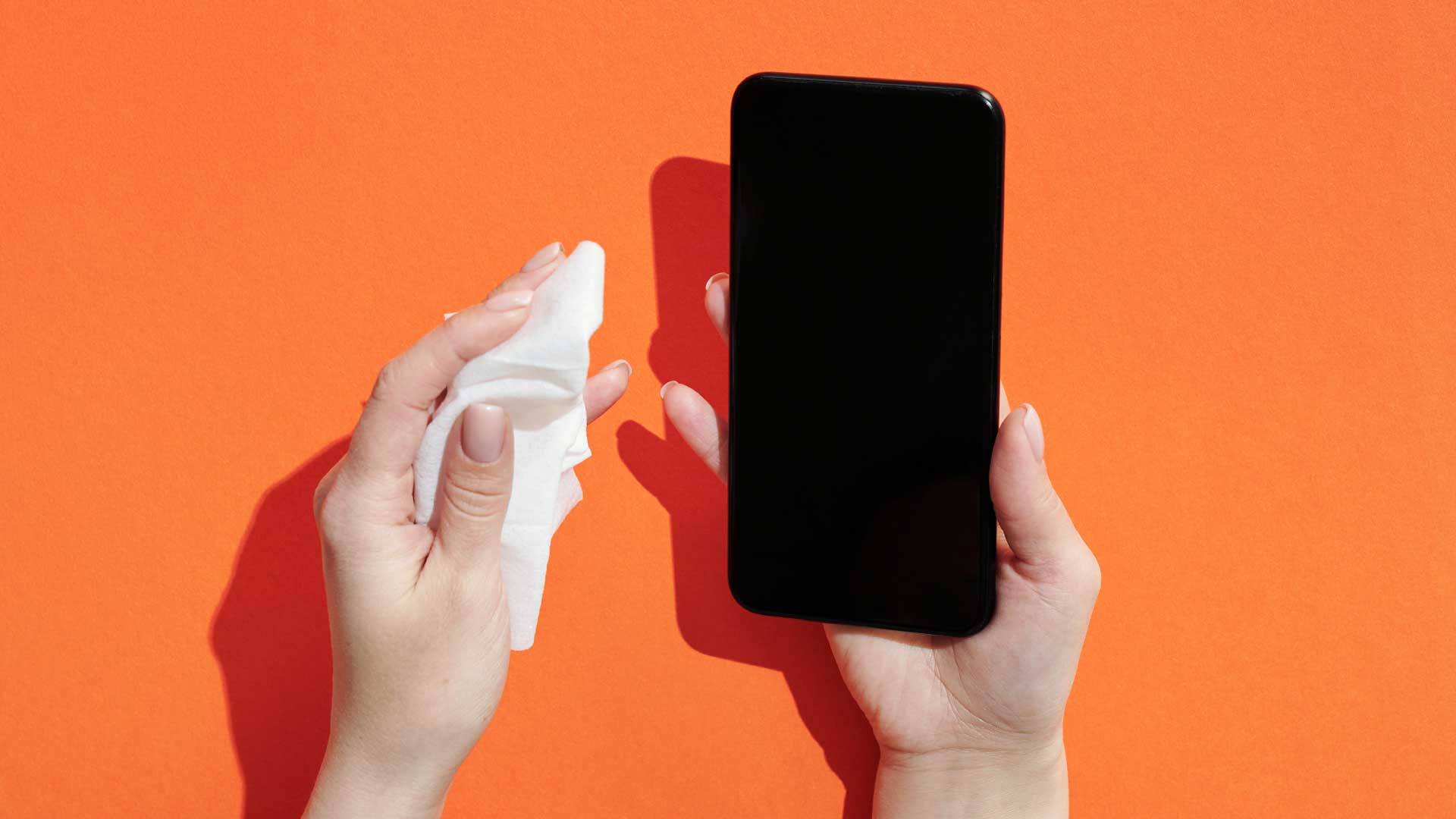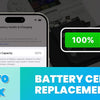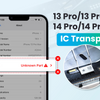The Right Way to Clean Your Phone Screen: Disinfection and Sanitization

Our daily lives have become increasingly dependent on smartphones. They are not just communication devices but also gateways to the world of the internet, multimedia platforms, and various apps that aid in managing day-to-day activities. Consistent cleaning and sanitizing play a vital role in maintaining the user's health as well as the device's longevity. Let's explore the right way to clean your phone screen to ensure it's free of germs, grime, and smudges that may affect its performance and your health.
Why is it Important to Clean Your Phone Screen?
Our phones, specifically our touch screens, harbor a host of germs. From checking your emails on the go to browsing the internet while commuting, your phone screen is constantly exposed to a variety of environments and surfaces laden with germs.
Importance of cleaning and sanitizing phone screens
-
Prevention of Disease: Frequent cleaning and sanitizing helps prevent the spread of infectious diseases that can be transmitted through contact with contaminated surfaces.
-
Increased Longevity: Regularly maintained screens can prevent buildup that might eventually damage the screen or interfere with touch sensitivity.
-
Improved Functionality: Clean screens provide clearer visibility and more responsive touch interactions.
-
Holistic Hygiene: Phones are constant companions in diverse environments; keeping them sanitized is a part of personal hygiene.
Why Phone Screens Are Vulnerable to Grime and Smudges
Most smartphone screens, including those from leading manufacturers like iPhone and Samsung, are designed with a coating to fend off grime and smudges. However, this protective layer may wear off over time, leaving the surface of your phone more susceptible to dirt, oil, and other undesirable elements that can linger on the screen. Frequent wiping of the screen, using a clean microfiber cloth or specially designed phone cleaning wipes, can help to maintain its cleanliness.
How to Clean the Phone Screen?
Gather the Right Materials
To effectively clean and sanitize a phone, it is imperative to use the appropriate tools and products that are both safe for the device and powerful enough to eradicate germs. Experts often recommend certain materials that are specifically designed for electronic devices.
Choosing the right cleaning products for your phone screen
-
Microfiber Cloth: Select a soft microfiber cloth to avoid scratching the screen.
-
Disinfecting Wipes: Use Lysol or similar wipes specified safe for electronics.
-
Isopropyl Alcohol Solution: Ensure it's at a concentration of 70% for effectiveness.
-
Soap and Water: A mild solution can be used for gentle cleaning.
-
Avoid Harsh Chemicals: Steer clear of bleach, metal cleaners, or aerosol sprays that could damage the phone.
Preparing Your Phone
When it's time to clean your phone, certain preparatory steps must be followed to ensure not only the thoroughness of the cleaning but also the safety of the device throughout the process. Cleaning a phone without proper preparation may compromise its functionality or skip over areas that harbor germs.
Gather Your Supplies.
Turn off and unplug your phone
-
Before starting the cleaning process, turn off the phone. This is a crucial step to avoid any accidental input or interaction with apps and settings while cleaning.
-
It is also essential to unplug the phone from any charging cables or power sources. This reduces the risk of electrical hazards and makes it easier to clean all surfaces without obstruction.
Remove any cases or covers
Phone cases and covers should be detached from the phone because dirt and bacteria can accumulate in the areas they cover. By removing them, one can clean these often overlooked spots. Cleaning the case itself is also important as it constantly comes into contact with your hands and various surfaces. Most cases can be cleaned with soapy water, but check the manufacturer's instructions for material-specific care.
Once these initial steps are completed, individuals can proceed with wiping down their phone with a recommended cleaner, such as a mix of water and isopropyl alcohol, followed by drying it with another section of the microfiber cloth.
Cleaning the Exterior
The exterior of the phone is prone to collecting unwanted smudges and crud with regular usage. To tackle this, experts recommend using a soft, lint-free microfiber cloth to gently wipe the surface of the phone. This cloth effectively picks up dust and oils without scratching or leaving residue on the delicate screen and body of the device. Users should clean the phone in horizontal and vertical motions to ensure even cleaning and avoid creating streaks. It's advisable to rinse and wring out the cloth frequently during this procedure to maintain its efficacy.
Avoiding harsh cleaning agents that can damage your phone
Care must be taken when selecting cleaning solutions for a phone. Many commercial disinfectants contain alcohol, bleach, or vinegar which, despite their sanitizing properties, can gradually wear down the protective coatings on a smartphone's screen. Hence, to avoid unnecessary damage, it is recommended to avoid such abrasive substances and instead slightly dampen a cloth with soap and water. Spraying cleaners directly onto the phone should be avoided, as should allowing moisture to enter any charging ports or speaker grilles.
Sanitizing Your Phone
To ensure the eradication of harmful germs from the phone's surface, experts suggest gently wiping down the device with an anti-bacterial wipe. This process should encompass the entire exterior, including the screen, to maximize the cleanliness. Users need to be cautious and should not saturate their devices with liquid, but rather use just enough moisture to clean the surface without risking liquid damage.
Frequently Asked Questions
What Not to Do When Cleaning Your Phone Screen?
Bleach and isopropyl alcohol are abrasive cleaning agents that can erode your screen's protective coating and cause damage to the glass screen, resulting in a poor user experience.
Can UV Phone Sanitizers Effectively Clean Your Device?
UV phone sanitizers are becoming increasingly popular. They promise to kill 99.9% of bacteria and viruses using UV light. Although these devices can be quite useful, they should not completely replace traditional cleaning methods.
Conclusion
By following these steps and incorporating regular phone screen cleaning into your routine, you can ensure that your device remains clean, hygienic, and free of harmful bacteria. Remember, a clean phone screen is not only good for your health but also for the longevity of your device.
-
Posted in
clean phone, phone screen




